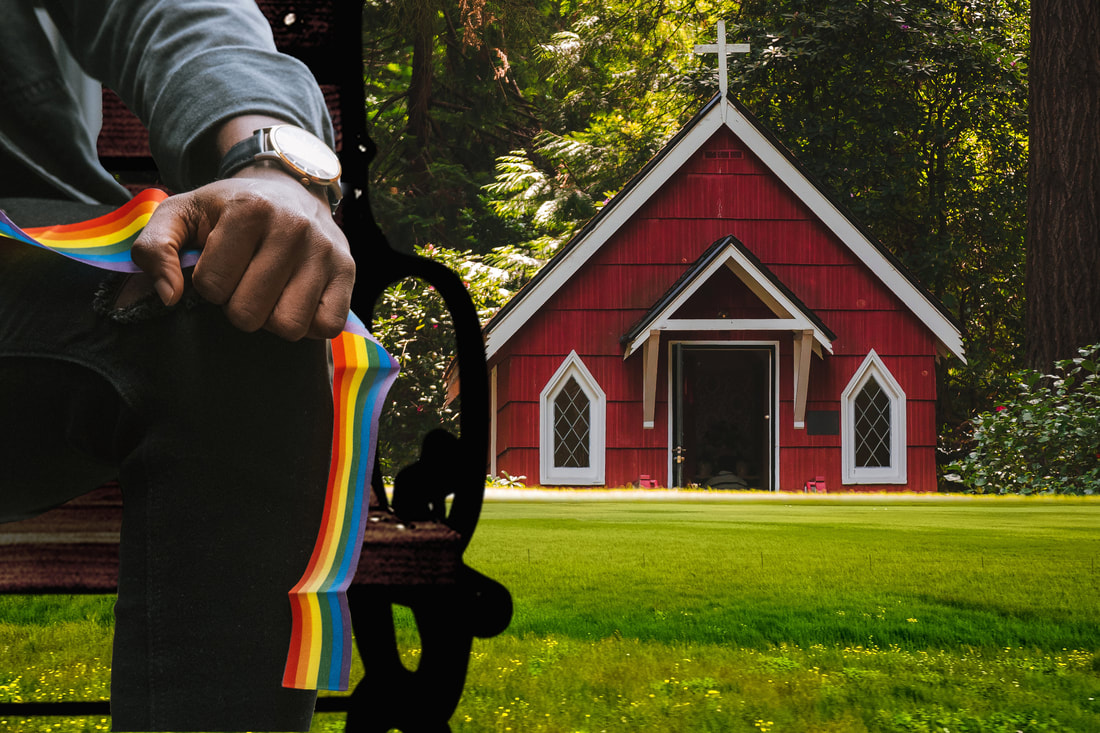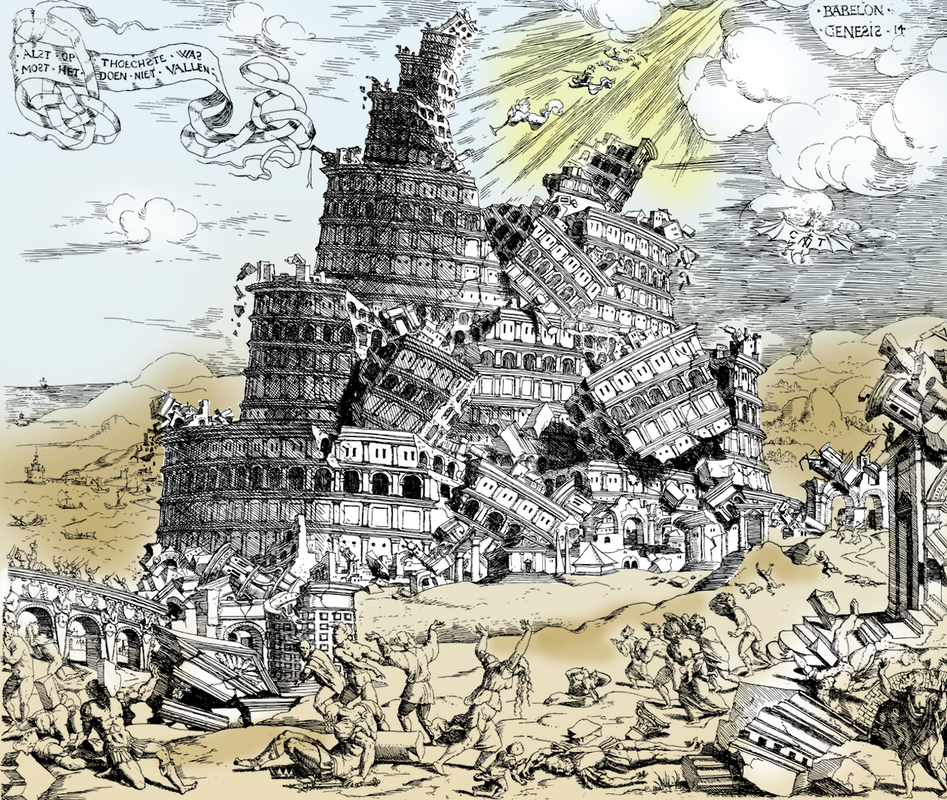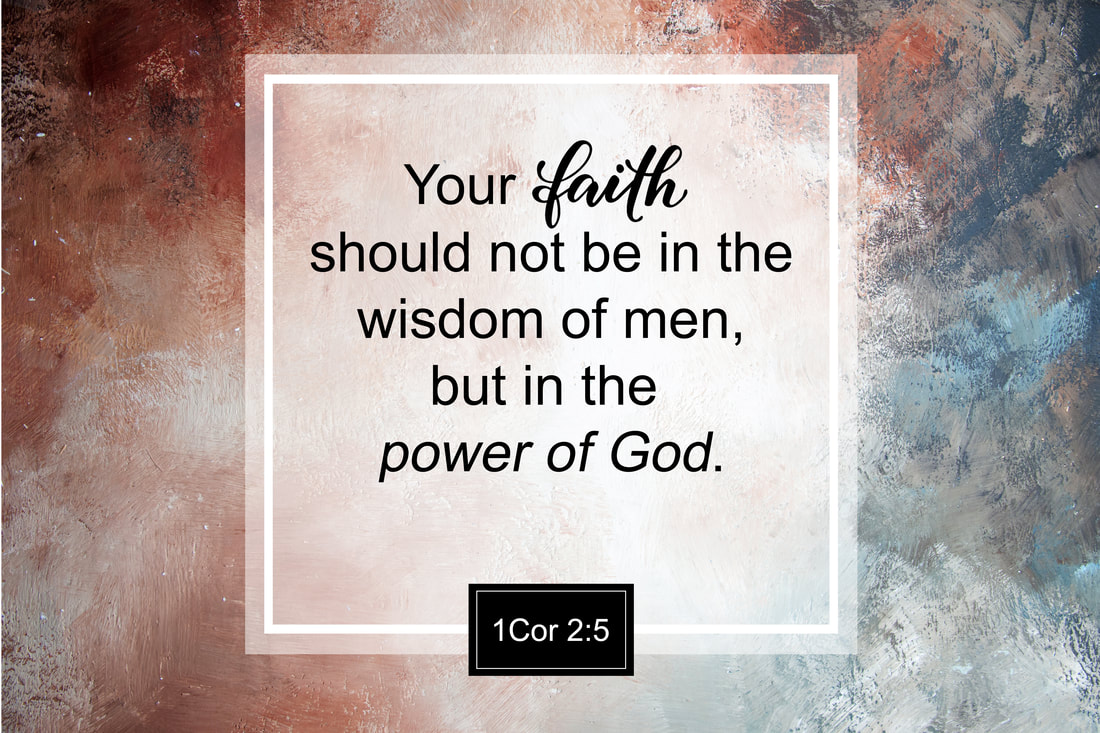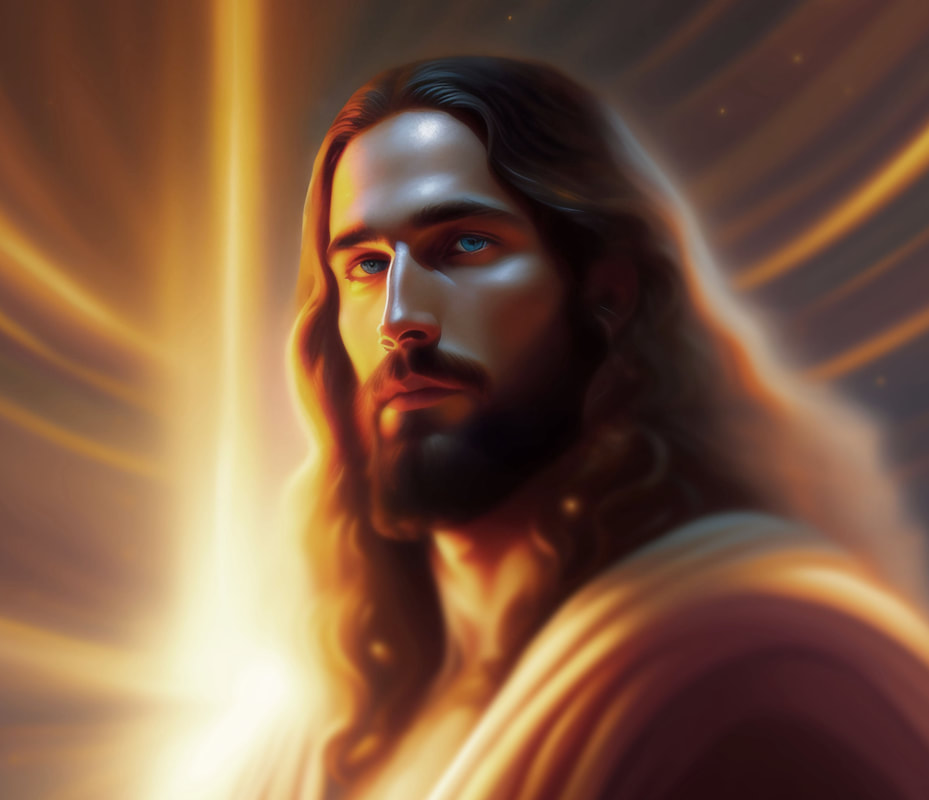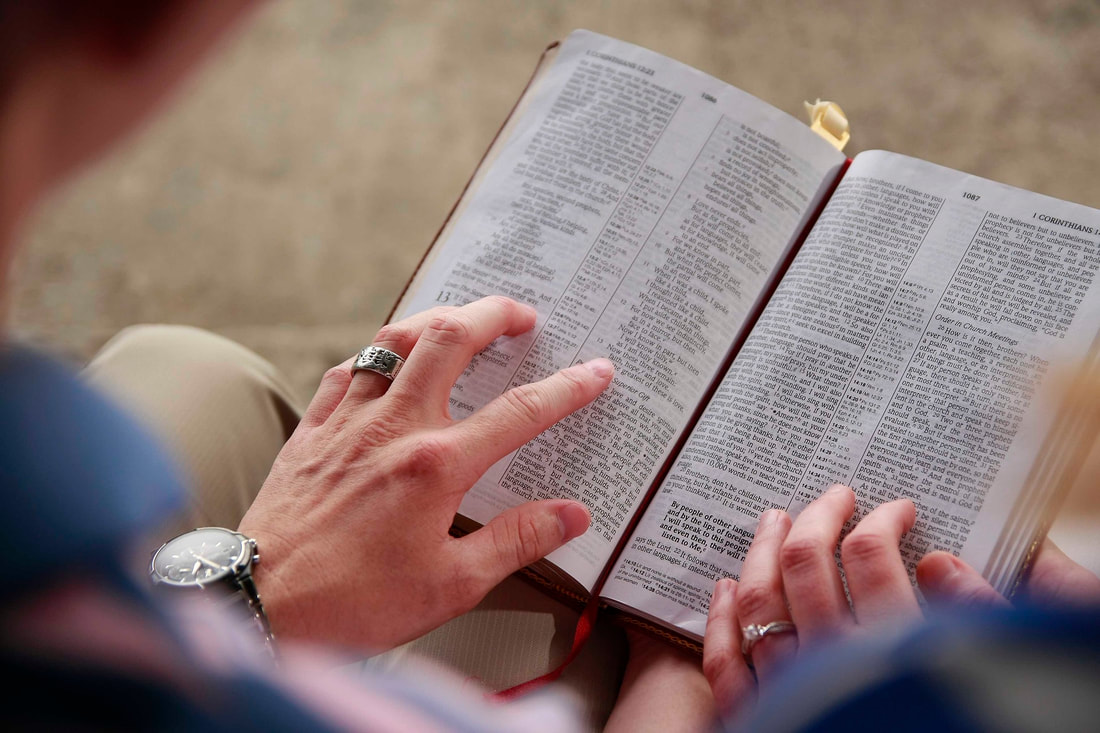|
A John Piper Sermon Summary What does it mean for God to be our refuge, Lord, treasure, and counselor? How does He bring us into everlasting pleasure? Let’s learn from Psalm 16, a psalm by David.
This psalm begins with David taking refuge in God by asking for his protection. God provided David the safest place (v1). To David, God was his Lord and his supreme treasure over everything. David wouldn’t even mention the names of other gods, though he would find delight in other righteous people. David chose God over everything else, and God was all David needed to give him the greatest joy. Also, God would protect David’s lot, and set his boundary to position him at the best place, bringing him delight and a wonderful future (v2-6). To David, God was his trusted counselor. God gave David refuge when he was in danger. God enlightened him on what to do and where to go, ensuring David to have everything he needed and to be very well-positioned. So, David was confident and would not be shaken (v7-8). To David, God would not leave him among the dead, but instead let David enjoy Him forever (v9-10). This assurance is peculiar because the prophet Samuel told David he would die and rest with his ancestors. Samuel also predicted that the kingdom of one of David’s descendants would last forever (2 Samuel 7:12-13). So would David die and rest with his ancestors, or would he be coming back from the dead? David didn’t really know, but we do now. The Apostle Peter explained that in Psalm 16, though David didn’t fully understand, he was referring to the resurrection of Christ (Acts 2:30-32, 1 Peter 1:10-12). All who trust Christ are united with Him in His triumph over death. The Holy Spirit who raised Christ from the dead will give all believers everlasting life (Romans 8:11). God will teach them the path of life and will eternally fill them with joy (Psalm 16:11). That’s how God becomes our safest refuge, sovereign Lord, supreme treasure, and trusted counselor, who brings us into everlasting pleasure! Summary of a sermon titled “God guides you to places and situations that will better your life” by John Piper: https://www.youtube.com/watch?v=XQn3wNkZEoQ 上帝带领我们进入永远的喜乐 圣经里写到上帝是我们的避难所、我们的主、我们的珍宝和谋士, 这是什么意思呢?祂怎样带领我们进入永远的喜乐? 让我们从大卫的诗篇 16 篇学习。 大卫在诗篇一开始就请求上帝保护他,以上帝为自己的避难所。上帝是最安全的地方(v1)。 对大卫来说, 上帝是他的主,超越一切之上的至宝。 他漠视所有其他神灵,甚至不提及它们的名字,但其他圣人使大卫感到高兴。 大卫选择上帝胜过万有,上帝是他一切所需要的,赐给他最大的快乐。 他知道上帝会保护属于他的, 为他设定疆界,把他安置在最美之地,给他带来喜乐和美好的未来(v2-6)。 对大卫来说, 上帝是他信赖的谋士。 祂为大卫提供危难时的避难所;祂光照大卫该做什么、该往哪里去,确保大卫拥有需要的一切,处于非常有利的位置。因此大卫信心十足,毫不动摇(v8)。 对大卫来说, 上帝不会把他留在死人之中, 而是让他永远享受祂(v9-10)。 这个保证异乎寻常,因为先知撒母耳告诉大卫他会死去,与他的列祖一起安息。 撒母耳还预言大卫后裔的国将永存(撒母耳记下 7:12-13)。 大卫会死去, 永远与列祖同在,还是会死而复活呢? 大卫并不知道,但是我们知道。 使徒彼得解释说,在诗篇 16 篇中尽管大卫不完全明白, 他其实是在预言基督的复活(使徒行传 2:30-32,彼得前书 1:10-12)。 所有信靠基督的人都与基督联合,在祂战胜死亡时一同得胜。 使基督从死里复活的圣灵将赐永生给信靠基督的人(罗马书8:11)。 上帝将教导他们生命的道路,使他们充满永恒的喜乐(诗篇16:11)。 上帝就是这样成为我们最安全的避难所、至高无上的主、最好的珍宝和值得信赖的谋士, 带领我们进入永远的喜乐!
0 Comments
Many of us believe happiness depends on getting something, but once we acquire it, we don’t feel satisfied. Many of us, for whatever reason, have a public self very different from our private self, and such a contradiction makes us feel lonely. Why do we do this? What’s the point of life? According to King Solomon, one must understand four things in order to live a meaningful life (Ecclesiastes 9:1-10). First, we must understand that we don’t know what tomorrow will bring (Ecclesiastes 9:1, James 4:13-14). Today’s lovers can be tomorrow’s enemies. Nothing on earth can give us security. Second, we must recognize that one day we will die (Ecclesiastes 9:2-3). Contemplating and preparing for death will help us live more vibrantly today. Third, we should know that our hearts are filled with evil and insanity (Ecclesiastes 9:3). Our sins separate us from others and God. In addition, many don’t want God and believe they don’t need Him. Separated from others and from God, they feel emptiness. Christians accept their wickedness and their need for God. They ask God to pay for their sins with the blood of Christ, thus reuniting themselves with God. Fourth, know that as long as one is alive, one still has hope (Ecclesiastes 9:4-5). History shows us that our world is without justice and fairness. Gaining the world is not worth losing one’s life (Matthew 16:26). Without Christ paying for sins, life is hopeless. But if we accept Christ as our savior today, His death and resurrection will reunite us with God, and we will be transformed at least in the following ways. First, we will accept God as our Lord. Everything we have is from God and belongs to Him. We are just custodians, managing whatever God gives us. Whatever situation we are in, we give thanks to Him (Ecclesiastes 9:6-7, 1Thessalonians 5:16-18). Second, live a pure life, including in sex (Ecclesiastes 9:8-9). Love and enjoy life with our spouse, for this is what we have. Third, do things wholeheartedly, and don’t vacillate once decided. (Ecclesiastes 9:10). If you die today, would you consider you have lived a good life, fought a worthwhile battle? Would you have a sense of accomplishment, or would you be filled with regrets? Whether you decide to accept or reject Christ is your choice. Make a wise decision. Earnestly pray to God. 人生的目的是什么?
许多人认为快乐依赖于得到某些东西, 但是一旦获得却又感到不满意。 出于各种的原因,许多人私下的一面与公开的一面截然不同, 他们因为陷在这种矛盾中而感到孤独。 为什么要这样做呢? 人生的意义在哪里? 所罗门王认为想过有意义的生活,需要明白四件事(传道书 9:1-10)。 首先,明白我们不知道明天会怎样(传道书 9:1,雅各书 4:13-14)。 今天的爱人可能是明天的敌人。 世上没有什么能带给我们安全。 第二,明白死亡总有一天要临到(传道书 9:2-3)。 思考死亡并为之做好准备,如此将帮助今天更有活力地生活. 第三,明白人心充满了邪恶和疯狂(传道书 9:3)。罪使我们与人和上帝隔绝。 此外,许多人不想要上帝,并且相信不需要祂。 因为与人和上帝分离,人就感到空虚。 基督徒承认自己的邪恶和对上帝的需要,祈求上帝用基督的宝血偿还他们的罪孽,从而使他们与上帝再次相联。 第四,明白只要还活着,就仍然有希望(传道书 9:4-5)。 历史告诉我们世界没有正义和公平。 赢得世界而失去生命是不值得的(马太福音16:26)。 如果没有基督为罪付出代价,生活就毫无盼望。 但今天如果接受基督为救主,基督的死和复活将使我们与上帝重新结合,生命就会被更新改变。 首先,我们会接受上帝为自己的主。 我们所拥有的一切都来自上帝,属于上帝, 我们只是保管人,管理上帝赐给的一切。 无论处于什么情况,都感谢上帝(传道书 9:6-7,帖撒罗尼迦前书 5:16-18)。 第二,我们会生活纯洁,包括在性方面(传道书 9:8-9)。 爱我们的配偶,享受与配偶一起的生活,因为这是我们所拥有的。 第三,全心全意地去做事,一旦决定就不动摇(传道书 9:10)。 如果你今天就离开世界,你会认为活出过美好的生活,打过一场值得的仗吗? 你会感到有成就,还是充满遗憾? 无论你决定接受还是拒绝基督,这是你的选择。 做出明智的决定, 恳切地向神祷告吧。 Was God cruel and unreasonable in the Old Testament (OT)? (Joshua 8:24-26, 1Samuel 15:2-3, Deuteronomy 2:34, 2Samuel 6:6-7, and Job 2:3) It depends on how you define right and wrong. According to Humanism, a moral compass inside us defines right and wrong. In Confucianism, heaven places this compass (goodness) into us. This compass judges everything, including whether God is cruel. If so, this compass is above God. Note that the moral compass can differ, depending on race and historical time. Another doctrine is that God determines right and wrong. God reveals His nature to us generally and specifically. Generally, His nature is revealed by His creation (Roman 1:20). Specifically, God reveals His nature through Christ (Hebrews 1:1-3) and the Bible. Liberal theology accepts the parts of the Bible that can pass through their rationale. Catholics defer to their experts, with the infallible Pope at the top. As for Evangelists, what the Bible says is what God says. Evangelism accepts there are parts in the Bible we won’t understand (I Corinthians 13:12). Evangelism also accepts many Biblical descriptions as prophecies or precursors of things to come. Many passages in the OT predict and foreshadow Christ’s redeeming sacrifice (Luke 24:44), such as Abraham sacrificing Isaac. Another set of precursors refers to the end times, when God will establish a new heaven and earth (Eschatology). Technically speaking, such biblical events aren’t “historical” because they aren’t repeatable on earth, while historical events can happen again. Examples include God’s miracles and Christ’s resurrection. Other examples include certain catastrophic events in the OT that demonstrate God’s judgment in the end times. These parts of the Bible aren’t for teaching ethics for the current time but are about the world to come. In conclusion, if we are the ultimate arbiters of right and wrong, then we might consider some of God’s actions in the OT as cruel. But if God is the ultimate moral authority, then we need to accept God’s total sovereignty in all things—He is the one who decides; may His name be praised whether He gives or takes away (Job 1:21). 旧约中的上帝残酷吗?
旧约时代的上帝残酷无情的吗(约书亚记 8:24-26, 撒母耳记上 15:2-3, 申命记 2:34, 撒母耳记下 6:6-7, 约伯记 2:3)? 问题的答案取决于对与错的定义。 人文主义根据人内心的道德指南来定义是非。儒家思想认为上天把这善的指南放在人心中。 这个指南审判一切,包括上帝是否残酷。 如此它就凌驾于上帝之上。 请注意它可以根据种族和历史时间而变化。 另一个教义是上帝判断是非对错。 上帝普遍而又特别地显明祂的本性。普遍来说,祂在创造中显明祂的本性(罗马书 1:20); 特别来说,祂通过基督(希伯来书 1:1-3)和圣经显明祂的本性。 自由神学只接受通过其理论那部分的圣经。 天主教听从自己的专家,永远无误的教皇在其间居首。 福音派相信圣经所言就是上帝所言。 福音派接受圣经中有现在无法理解的部分(哥林多前书 13:12),也接受许多圣经的描述为未来事物的先兆。 旧约中的许多章节都预言和预示基督救赎之牺牲(路加福音 24:44),例如亚伯拉罕献以撒是父神牺牲基督的先兆。 另一组前兆针对末日,那时上帝要建立新天新地(末世论)。 这些事件本质上不是历史事件,因为它们在地上不会重复,而历史事件可以再次发生。相关的例子包括一些神迹和基督的复活,还包括旧约中某些灾难性事件 - 它们展示了上帝在末日的审判。圣经的这些部分并非为要教导当今时代的伦理,而是对未来的世界的前兆。 总而言之,如果是非对错的最终决定者是人,就可能认为上帝在旧约中的一些行为是残酷的。 但如果上帝是最终的道德权威,人就需要接受上帝对万物的完全主权--祂是一切的决定者; 无论祂给予还是夺走,祂的名是应当称颂的(约伯记 1:21)。 Christ told us to seek first His kingdom (Matthew 6:33). What does it mean? What is God’s kingdom? God’s kingdom isn’t a physical place but rather where God rules, where His name is honored and treasured, and where His will is done perfectly and joyfully (Psalm 103:19). God’s kingdom exists now among those who have passed through His judgment via Christ and live under His dominion (Luke 11:20, 17:21; Colossians 1:13). But God’s kingdom is also coming, to be inherited (Luke 19:11, 1 Corinthians 6:9). When Christ comes back to establish the new heaven and earth, His kingdom will have come, as petitioned in the Lord’s prayer. God’s kingdom is manifested in a life justified through Christ and gradually more conformed to Him, and in a life of peace and joy via the Holy Spirit (Romans 14:17). The Holy Spirit bears such fruits, so let the Holy Spirit lead. That is when God is pleased and His kingdom is here (Romans 14:18, Matthew 12:28). We are different from each other, but such differences shouldn’t affect God’s kingdom nor hurt other Christians. Let’s glorify God in our different ways and serve in love, because Christ died for us all, and all stand before His judgment. The Holy Spirit will help us build others up (Romans 14:3-23). God doesn’t need our services; in fact, He provides all things and Christ came to serve (Acts 17:25, Mark 10:45). Our service should bear witness to His kingdom (Romans 14:18) and bring glory to Him, not showing off our abilities (Hebrews 13:21). God loves to see His workmanship shine. Such service glorifies God and pleases Him (1 Peter 4:11, Romans 14:18). If we seek His kingdom and what He considers right, “all these things” shall be given to us. “All these things” doesn’t mean what makes us comfortable. We may endure persecution, war, and famine. “All these things” are the traits and resources we need to follow His will, glorify His name, and live under His rule. Don’t be anxious about survival or appearances because nothing can separate us from His love (Matthew 6:26-30). Instead, seek His kingdom before all else. Summary of three sermons by John Piper. “What is the Kingdom of God”: https://www.youtube.com/watch?v=khotCJrEFzQ “Matthew 6:33”: https://www.youtube.com/watch?v=YdNTtscGMl8 The Kingdom of God is Righteousness and Peace and Joy in the Holy Spirit: https://www.youtube.com/watch?v=pRm60ZUoZSg 什么是上帝的国?
基督教导我们要先求上帝的国(马太福音 6:33)。 这是什么意思呢? 什么是上帝的国? 上帝的国不是一个物质的地方,而是上帝统治的地方, 祂的名在那里被尊敬并珍惜,祂的旨意在那里得到完美和喜乐的成就(诗篇 103:19)。 上帝的国现存于那些藉着基督通过了祂的审判并接受祂统治的人中间(路加福音11:20、17:21;歌罗西书1:13)。 但上帝的国也将来临,将被承受(路加福音 19:11,哥林多前书 6:9)。 当基督再来完成祂的统治并建立新天新地时,祂的国就到来了,正如主祷文中所祈求的那样。 上帝的国显现在因基督而称义并逐渐变得更加像基督的生命中, 显现在那藉着圣灵而有的平安喜乐的生命中(罗马书14:17)。圣灵结出这样的生命果子, 所以让圣灵来引导我们的生命。 这就是上帝喜悦的时候,也是上帝的国降临的时候(罗马书 14:18,马太福音 12:28)。 我们每个人都不一样, 但这种差异不应该影响上帝的国,也不应该伤害其他基督徒。 让我们以不同的方式荣耀上帝, 并凭着爱心来服事,因为基督为所有人而死,并且所有人都要站在祂的审判面前。 圣灵会帮助我们造就人(罗马书 14:3-23)。 上帝不需要我们的事奉。 祂供应万有,并且基督来服侍我们(使徒行传17:25,马可福音10:45)。 我们的服事应该为上帝的国作见证(罗马书14:18),将荣耀归给上帝,而不是炫耀自己的能力(希伯来书13:21)。上帝喜悦看到祂的作品闪耀发光。 这样的服侍荣耀上帝并讨祂喜悦(彼得前书 4:11,罗马书 14:18)。 如果寻求上帝的国和祂以为正的事, “这一切”都会赐给我们。 “这一切”并不意味着让人感到舒适的一切. 信徒可能会经历迫害、战争和饥荒。 “这一切” 乃是遵行祂的旨意,荣耀祂的名,并在祂的统治下生活所需要的品质和资源。 不要为生存或外在之事物而焦虑,因为没有什么能使我们与祂的爱隔绝(马太福音6:26-30)。 相反地在一切之上,让我们先求祂的国。 If you were to die today, would you be ready to meet God? Like a flood in the day of Noah, death and judgement can come quickly (Matthew 24:37-39). Pastor Dwight Moody considered himself responsible for his congregation. If he hadn’t warned them and they died, the blood of those going to hell would be on his hands (Jeremiah 6:10, Ezekiel 33:4-6). He was compelled by love to warn them, like a mother alerting her child of approaching danger. Have we warned our friends and relatives of impending judgment? As we age, there are clear signs of death approaching. If you died now, where would you go? To be with Christ in eternal life? Or to everlasting hell, without God and hope? Let’s examine the reactions of those who witnessed Christ on the cross. Some watched Christ with apathy. Some scoffed at Him, challenging Him to save Himself if He was truly the Messiah (Luke 23:35-39). But one criminal also being crucified knew he deserved this punishment of crucifixion. And he asked Christ to save him (Luke 23:42-43). The criminal might not have known much about Christ. For example, he had no idea of Christ’s resurrection. But he knew he himself deserved to die for his crime (Romans 6:23), and he believed Christ was the solution. So, he asked Christ for help. He asked Christ to remember him when Christ came into His kingdom. That was enough for the criminal to be saved; Christ told the criminal he would be with Him in paradise on that day (Luke 23:40-43, John 1:10-13). Don’t ignore Christ knocking on the door (Rev 3:20). Learn from the criminal. Know that you deserve God’s punishment, recognize Christ as the solution and ask for His help. Though you may know very little about Christ, surrender as much as you can to the Christ you understand. You will have Christ and receive eternal life (1 John 5:12-13). If you repent and turn back to God, He is ready to receive and bless you forever. You will experience the joy of sin forgiven. Then focus on seeking His kingdom and doing what He considers right, and God will provide you with everything you need (Matthew 6:25-34). Summary of two sermons: Therefore Be Ye Also Ready by Dwight Moody https://www.youtube.com/watch?v=kuwdslyA7Ko Open the Door by Andy Wood https://www.youtube.com/watch?v=0bqPoici4kk 今天你准备好迎见上帝吗?
如果今天就离开世界,你准备好迎见上帝吗? 就像挪亚时代的洪水一样,死亡和审判可以很快就到来(马太福音 24:37-39)。 穆迪牧师认为要对自己的会众负责。 如果不警告他们,而他们死了, 那些下地狱之人的血就会沾在他手上(耶利米书 6:10, 以西结书 33:4-6)。 是爱促使他警告这些会众,就像母亲警告她的孩子危险将要来临一样。 我们是否警告过亲朋好友即将来临的死亡和审判? 人随着年龄的增长都有清楚的迹象表明死亡的临近。 如果你今天就死了,你会到哪里去? 是进入与基督同在的永生, 或是落入没有上帝和盼望的永恒地狱? 基督钉在十字架上的时候,下面站着许多人。让我们来看一看他们的反应。 有些人冷漠地看着祂, 有些人嘲笑祂,挑战祂如果真是弥赛亚就去救自己(路加福音 23:35-39)。 但有一名也被钉在十字架上的罪犯,知道自己应该被钉死在十字架上,求基督救他(路加福音 23:42-43)。 这人可能对基督知道得并不多。 例如, 他完全不知道基督会复活。 但他知道应该为自己的罪而死(罗马书 6:23),也相信基督是对此的解决方案。 所以,他向基督求助, 请求祂在得国时记念他, 仅此就足以让他得救。 基督告诉他那天将与自己一同在乐园里(路加福音 23:40-43,约翰福音 1:10-13)。 基督在敲门,不要忽视(启 3:20)。向那罪犯学习,知道自己应该受到上帝的惩罚,相信基督是问题的解决方案,寻求祂的帮助。 虽然你可能对基督知之甚少,尽己所能地降服于你所了解的基督。如此,你将拥有基督,得到永生(约翰一书 5:12-13)。 如果你悔改并转向上帝, 祂就已准备好永远接纳和赐福你, 你将体验到罪得赦免的喜悦。 下一步,专注于寻求祂的国,行祂眼中为正的事,上帝将供应你一切的所需(马太福音6:25-34)。 If you are overtaken by the darkness of night, discouraged and distressed, and want to give up your dedication to God, then learn from Isaiah 41:14. Know your insignificance, trust God’s promised strength, and discard your fear. Behold our universe. If we know we are just insignificant specks, we will shrink in awe at how the Almighty still cares for us (Isaiah 41:14, Psalm 8:4). We are incompetent little worms. God can cast us into total misery just by touching one of our nerves. In pain and sorrow, we see how small and low we are. But this little worm can accomplish anything because the Lord said, “I will help you” (Isaiah 41:14). If we rely on God’s promises, then nothing is beyond us. But God will not help those who think highly of themselves. God’s help comes in times of need. Fear of God brings blessing. However, the fear of man is a snare, trips us, and makes us unfaithful to God. When we doubt our Lord, we deem our omnipotent, faithful, and merciful God as breaking His oath, and we dishonor Him. Cast out fear because fear weakens and torments us. Trust that God will help you (Isaiah 41:14). Confidently follow our Lord with trust and quietly wait for Him to defy the world. You will put a crown on His head. Plant your foot on the immovable rock. Don’t be afraid to attempt great things, for God is with you. Be brave, and you will overcome great challenges. God is faithful to keep His promises to His children. He will help you as He has done before. The more you trust Him, the higher you go, and there is no limit what you can do. However, if you have done big things, be careful. We love flattery and praise, so it’s important to remember He who made your success possible. Be amazed that God has enabled such a worm to achieve accomplishments. Rejoice that He is your God and praise Him (Isaiah 41:15-16). The more you see God’s glory, the more humble you’ll become. Always remember: Not by might, nor by power, but by God’s Spirit (Zechariah 4:6). What an honor it is to be helped by God. 不要惧怕
每当你被黑夜笼罩,灰心丧气,想要放弃对上帝的忠心时,请学习以赛亚书41章14节。认识自己的卑微,相信神所应许的力量,除去自己的恐惧。 放眼我们四围的宇宙。 如果知道自己只是微不足道的尘埃,思想到全能者仍然顾念我们,敬畏之心就会油然而生(以赛亚书41:14,诗篇8:4)。 我们不过是无能的小虫, 上帝只需触动一根小小的神经,就能让我们陷入彻底的悲哀。 在痛苦和悲伤中,人会看到自己是多么渺小和低微。 然而,因为主说:“我会帮助你” (以赛亚书 41:14),这条小虫却能完成任何事。 如果依靠上帝的应许,没有什么不能做到。 但上帝不会帮助那些骄傲的人。 祂的帮助在有需要的时候临到。 敬畏上帝带来祝福, 但对人的恐惧却让我们落入圈套, 绊倒扑地,使我们对上帝不忠。 怀疑主,认为全能、信实和仁慈的上帝违背了祂的誓言时,就是在羞辱祂。 驱除恐惧,因为它使我们软弱,并且折磨我们的身心。 相信上帝会帮助你(以赛亚书 41:14)。 满怀信心地跟随主,安静地等侯祂来挑战这世界,如此就将冠冕戴在祂头上。 当将我们的脚踏在不可动遥的磐石上。不要害怕尝试伟大的事,因为上帝与你同在。 要刚强壮胆, 就可以克服巨大的挑战。神对祂儿女的应许是信实的。 祂会像过去那样帮助你。 越信靠祂,就攀登得越高,再高的山峰都能征服。 但如果你成就了一件大事,要小心谨慎。 人都喜爱奉承和赞美, 所以要记住是上帝让你的成功变为可能。 当为上帝使自己这小虫取得如此成就而惊讶, 因祂是你的上帝而喜乐并赞美祂(以赛亚书 41:15-16)。 越看到上帝的荣耀,你就会变得越谦卑。 总要记得: 不是倚靠势力,不是倚靠才能,乃是倚靠上帝的灵方能成事(撒迦利亚书4:6)。 能得到上帝的帮助何等荣幸! We live in a world with all types of people, each with a unique life story. Uniqueness can create barriers, causing separation and intense distress. Christ embraces our uniqueness with grace and truth (John 1:14). He unconditionally loves us, not based on our merit or performance. He hung out with the drunkards and gluttons, drawing them to Him (Luke 19:10). Yet He never compromised truth. God opposes any thoughts or actions that fall short of His will (Romans 3:23). He is against them because He cares for us. He sets boundaries because He knows going beyond will destroy our relationships and ultimately lead to death (Romans 6:23). Scripture, which is inspired by God, teaches us what is true and right (2 Timothy 3:15-17). But sometimes our emphasis on certain mistake is disproportional to its representation in the bible. For example, the Bible focuses significantly more on envy and greed than homosexuality, though many concentrate more on homosexuality. Learn to use Scripture to assess ourselves, not others. God tells us to run from sexual immorality (1 Corinthians 6:18), which give us lots of guilt and shame. Sexual mistakes include pornography and sleeping with someone other than your wife. Christ didn’t touch on LGBTQ issues, though there was homosexuality in His time on earth. Use the entire Bible, not one verse, to see what the Bible affirms as good and corrects—not condemns—what is wrong. The closest Christ taught on LGBTQ was marriage, which He anchored on God’s original design (Matthew 19:3-5). In marriage, man and woman should be in a covenantal and committed relationship. One goal of marriage is to fill the earth with people to spread God’s goodness. Paul discussed the practice of (not just the desire for) homosexuality, along with stealing, greed, drunkenness, slander, and swindle, considering all as practices leading to hell (1 Corinthian 6:9-10). God knows all of us are broken and in need of a savior. We are called to trust Him to save us, forgive our broken past, and be purified (1 Corinthians 6:11). Trust that He knows best. Surrender to His will, even when we don’t understand. This will honor Him and exalt His name. Summary of a sermon by Andy Wood: https://www.youtube.com/watch?v=1UM5mSu0BWI 圣经如何看待 LGBTQ+?
我们生活在各种各样的人中间,每个人都有自己独特的故事。 这些不同的特性可以造成隔离,带来强烈的痛苦。 基督用恩典和真理拥抱我们的独特性(约翰福音 1:14)。 祂无条件地爱我们,并不基于我们的优点或表现。 祂与贪食好酒的人在一起,吸引他们归向祂(路加福音 19:10)。 然而,祂从不在真理上妥协。 上帝反对任何不符合祂旨意的思想或行为(罗马书 3:23)。 上帝反对因为祂顾念我们。 祂设定界限,因为祂知道超越这些界限会破坏人与人,人与神之间的关系,最终的结局就是死亡(罗马书 6:23)。 圣经是上帝所默示的,教导人什么是真实和正确的 (提摩太后书 3:15-17)。 但是,有时我们对某些错误的强调与圣经中对其他的表述不成比例。 例如,圣经更多地关注嫉妒和贪婪,而不是同性恋,虽然许多人更关注同性恋。 当学习使用圣经来评估我们自己,而不是其他人。 上帝告诉我们要逃避淫行(哥林多前书 6:18),它会给我们带来很多内疚和羞耻。 淫行包括色情和与妻子以外的人发生性行为。 但基督并没有教导 LGBTQ+, 尽管在祂的时代有同性恋。 要使用整本圣经,而不是一节经文,来看圣经肯定什么是好的,纠正(而不是谴责)什么是错误的。 基督在LGBTQ+上最接近的教导是婚姻。 祂强调婚姻是上帝最初的设计(马太福音 19:3-5),男女双方在婚姻中是立约和承诺的关系。 婚姻的目的之一是让人充满全地,将上帝的良善扩展到整个世界。 保罗谈到同性恋的行为(不仅仅是欲望),把它与偷窃、贪婪、醉酒、诽谤和诈骗同列,认为所有这些罪都会把人带进地狱(哥林多前书 6:9-10)。 上帝知道所有人都是破碎的,都需要救主。 祂呼召人相信祂来得拯救,赦免破碎的过去,并且得洁净(哥林多前书 6:11)。 当信靠祂最了解我们。 要降服在祂的旨意之下,即使我们有时不明白。 如此行就会荣耀祂,高举祂的名。 Babel was a turning point in the Bible (Genesis 11:1-9). From there, Abraham came and changed the world. At Babel, God confused the languages of the people there, scattering them. Out of pride, they stopped glorifying God and sought to make a name for themselves (Genesis 11:4), and possibly make themselves equal to God (Genesis 3:4-5). But pride may not be the only reason for God’s intervention. Babel wasn’t just a tall building. Babel was also a city. Through language confusion, they stopped building the city (11:4,8). God called humans to fill the earth and multiple (Genesis 1:28; 9:1,7). But the people of Babel built the city so they wouldn’t be scattered over the face of the earth (11:4). They wanted to consolidate and strengthen their power. The city gave them a sense of security. We see similar events in Acts. Initially, the church in Jerusalem was warm and comfortable, with thousands converted. They were learning God’s words, fostering fellowship, eating together, sharing everything, and enjoying the favor of all the people. They could even communicate in different languages (Acts 2-4). But had they forgotten God telling them to spread the gospel to the ends of the earth? (Acts 1:8) Stephen’s speech in Acts 7 recounts Abraham leaving his homeland and changing the world; Joseph being exiled to Egypt, saving and growing the entire Israel tribe; the Israelites experiencing wonders in Egypt, like the splitting of Red Sea; and Moses receiving the laws at Mount Sinai and standing on a land God called holy ground. None of these events happened in Jerusalem. The focus shouldn’t be Jerusalem, their comfort zone; or their temple (God not dwelling in houses made by humans). After Stephen’s speech, great persecution scattered Christ’s followers throughout Judea and Samaria (Acts 8:1), Paul was transformed, and the gospel was widely spread (Acts 9). If we try to consolidate power and control our future with our ability, we will experience life like a little boat in a wild sea, violently tossed by huge and unpredictable waves. Don’t focus on your fragile security, name, influence, and power. Don’t focus on strengthening your power. Instead, forget ego and security. Trust that God controls everything and find peace in that. Offer yourselves to Him and be willing to be scattered to spread His glory. 巴别事件 巴别的出现是圣经的一个转折点(创世记 11:1-9)。 亚伯拉罕从那里而来,从此改变了世界。 上帝在巴别藉着变乱语言分散那里的人。他们出于骄傲,不再荣耀上帝,而是想为自己传扬名声(创世记11:4),或许期盼可以与上帝平等(创世记 3:4)。 但人的骄傲可能不是上帝干预的唯一原因. 巴别不仅仅是一栋高楼,也是一座城市。 那里的人因为语言混乱,停止建造这城 (创世记11:4,8)。 上帝呼召人遍满全地, 生养众多(创世记 1:28;9:1,7)。 但是巴别的人试图建造这城,使他们不会分散在地上(11:4)。 他们想巩固和加强自己的权力。 这城给了他们带来一种安全感。 我们在使徒行传中也看到类似的画面。 起初耶路撒冷的教会温暖而舒适,数以千计的人信主。 他们学习神的话,团契相交,一起吃饭, 凡物公用,得众人的喜爱。 他们甚至可以用不同的语言交流(使徒行传 2-4)。 但是,他们是否忘记了上帝托付他们要把福音传到地极的使命?(使徒行传 1:8) 司提反在使徒行传 7 章的演讲中复述了亚伯拉罕离开家园而改变世界; 约瑟被流放埃及而拯救并壮大整个以色列部落; 以色列人在埃及经历神迹奇事,例如红海分裂; 摩西在西奈山领受律法,站在上帝称为圣地的土地上。 这一切都没有发生在耶路撒冷。 注意力不应集中在他们的舒适区耶路撒冷或圣殿 (上帝并不住在人建造的房子里)。 司提反演讲后巨大的迫害使基督的追随者分散到整个犹大和撒马利亚(使徒行传 8:1),保罗信主生命被更新,福音被广传(使徒行传 9)。 如果我们试图用自己的能力去巩固权力,掌控自己的未来,就会经历到人生如同一艘小船,在茫茫大海中被狂风巨浪猛烈地抛掷撞击。 不要专注于自己脆弱的安全感、名誉感、影响力和权力。 不要专注于加强自己的力量. 相反地,忘记自我和安全感,相信上帝掌管一切,并在其中找到平安。 将自己献给祂,并愿意被祂差遣,四散全地传播祂的荣耀。 We must have faith in God to please Him (Hebrews 11:6). Without faith, we are without God, His blessings, hope, Christ, and salvation. First, the Bible declares that pleasing God depends on faith in God’s grace through Christ, and not on our merit, morality, kindness, religious behaviors, or self-denial. To go to God, we must have faith that God is who He said He is: the Trinity God, who is just, merciful, all-knowing, and omnipresent, who hears every word we pray and blesses those who earnestly seek Him. Without faith, prayer is useless. The importance of faith is taught throughout the scripture. Justification, righteousness, and salvation are by faith through Christ, not by observing any laws. When you don’t trust a person, you can’t please him. A child always doubting his father won’t please him. To doubt God’s power or goodness is to insult Him. If you distrust that God will keep His promises, or if you question His power to save you or forgive your sin, you assume God is a liar (1 John 5:10). You can’t get anything from God if you don’t trust Him. Also, if you distrust God’s words, promises, or wisdom, you will have difficulty loving God or being zealous for Him; you won’t appreciate his discipline, nor rejoice in Him. There are many examples in the Bible. Through faith, Enoch experienced no death. Without faith, the Israelites couldn’t get into Canaan (Hebrews 11:5). We must examine our faith carefully. Do we have child-like trust in God’s words, or do we trust our knowledge, judgment, or invention more than God? We should integrate faith into every part of our life, such as teaching, working, making money, or raising our children. Trust that God will accomplish His work. Don’t be afraid of trouble; trouble helps us grow. We tend to trust God the most when things are the worst. Don’t trust yourself or your work for salvation. Trust Christ’s work. God promised never to leave or forsake us (Deuteronomy 31:8). Whatever God has promised, He can and will perform! So, trust Him. Not by might nor by power but, it is by God’s Spirit that anything is accomplished (Zechariah 4:6). A summary of a sermon by Charles Spurgeon: https://www.youtube.com/watch?v=sDAGy1jXuqY&t=1s 如何取悦上帝 人必须信上帝才能取悦祂(希伯来书11:6)。如果人没有信、就没有神、没有神的赐福、没有盼望、 没有基督、也没有救恩。 首先,正如圣经所宣告的那样,取悦上帝取决于信。相信藉着基督赐下的上帝的恩典、而不是自己的功劳、道德、仁慈、宗教或克己的行为。 若要到上帝面前,必须相信上帝就是祂所说的那样:祂是三位一体的上帝,满有公义、怜悯、全知、全在; 祂垂听人每一句的祈祷,也赏赐那恳切寻求祂的人。没有信的祈祷是毫无功效的。 整本圣经都教导信的重要性。称义、公义和救恩都是因信靠基督、而不是靠遵守任何律法。 当你不信任一个人时,就无法取悦他。 一个总是怀疑父亲的孩子是不会取悦他的。 如果怀疑上帝的大能或良善,就是在侮辱祂。如果不相信上帝遵守祂的应许,或质疑祂拯救你或赦免你罪的能力,就是以上帝为说谎者(约翰一书5:10)。 如果不相信上帝,就无法从上帝那里得到任何东西。 此外,如果不相信上帝的话语、应许或智慧,就将很难爱上帝,对祂有热心,也不会忍耐祂的管教或以祂为乐。 圣经中有很多关于信心的例子。以诺因着信没有经历死亡,以色列人因没有信而无法进入迦南地(希伯来书 11:5)。 仔细查验自己的信心:对上帝的话语有孩童般的信靠,还是相信自我的知识、判断或发明超过上帝? 将信心融入生活的每个部分,例如教学、工作、赚钱或抚养儿女。相信上帝必要成就祂的工作。 不要害怕麻烦; 困难帮助人成长。事情最糟糕之时往往是人最信靠上帝的时候。 不要靠自己或自己的工作赚取救恩,要信靠基督的赎罪大工。 上帝应许永远不会撇下或丢弃我们(申命记31:8)。无论上帝应许了什么、祂都能也必成就。所以,相信祂吧! 不是靠势力或才能,而是靠上帝的灵方能成事(撒迦利亚书 4:6)。 Christ said, “in that day,” Father would give whatever we asked (John 16:23-27). And now is “that day.”
Now we have the Holy Spirit guiding us how and what to pray according to the Father’s will. We are enlightened even more than the disciples. Now Christ, our advocate, intercedes for us. “In that day” we can ask in His name (John 16:23). This is like the king allowing us to use his signature to write checks and endorsing them. If Father refuses us, He is refusing Christ! But Christ’s name must be used properly. Ask God not to grant our prayer if we ask for things Christ won’t ask. Our requests will be granted if they are right and if we believe. Now we can ask because the Father loves us and listens to us. Christ told us we don’t need Him to ask because the Father loves us (John 16:26-27). In His love, the Father sacrificed His Son to cover our sins. There are two categories of love. We can love the undeserving and we can love those who are good to us. Similarly, Father loves us, the undeserving, when we were sinners; and the Father loves us more if we love Christ (John 16:27). Like husband and wife brought together by loving their child, the Father and we are held together by loving Christ. But don’t be mistaken that the Father loves us because we love Christ. We love God because He first loved us (1 John 4:19). Christ tells us to ask (Matthew 7:7-8). It’s never in vain to wait upon the Lord, who delights to give great things to those who ask. So, ask continually. Satan wants you to stop praying. Don’t listen. Don’t give up. Ask simply and sincerely. Also, pray for others. When God wanted to destroy the Israelites, He listened to Moses pleading for them. “In that day” is also the day of persecution. Again, we must pray. Imitate David in declaring how God answered prayers (Psalm 118:5-7). Tell your children so. Declare to your neighbors trusting God far better than trusting man (Isaiah 26:4). Don’t reject God “in that day” because one day the door of mercy will close. “In that day” is the day of mercy. Ask earnestly now and receive from Him abundantly. Summary of a sermon by Charles Spurgeon https://www.youtube.com/watch?v=VcHlM6uTTA4 祈祷,不断地祈祷! 基督说天父上帝会在“那日”赐给我们所求的(约翰福音 16:23-27)。如今就是“那日”了。 现在信徒有圣灵带领按神的旨意怎样祷告和祷告什么, 所以我们甚至比当时的门徒更蒙光照。 现在信徒的中保基督在为我们代求。 “在那日”可以奉祂的名祈求(约翰福音 16:23),好像国王允许用他的签名来开支票。 如果天父拒绝我们,祂就是在拒绝基督!然而要正确地使用基督的名。如果我们祈求基督不会祈求的,求上帝不要应允。如果我们的要求是正当的,并且凭着信心求,祷告就会蒙应允。 更好的是,现在我们祈祷是因为天父的爱和聆听。 基督说我们不需要祂祈求天父,因为天父爱我们(约翰福音 16:26-27)。 天父在爱里赐下基督为我们牺牲,遮盖了我们的罪。 爱有两种类型: 爱不值得爱的人和爱对我们好的人。同样地,当我们还是罪人时,天父就爱我们这些不配的人; 不仅如此,如果我们爱基督,天父会更爱我们(约翰福音 16:27)。 就像丈夫和妻子因爱自己的孩子而团结在一起,天父和我们因爱基督而团结在一起。 谨记不要误以为天父爱我们是因为我们爱基督。 我们爱神,因为祂先爱我们 (约翰一书 4:19)。 基督告诉我们要祈求(马太福音 7:7-8)。 等候主永远不徒然,祂乐意将美好宝贵的东西赐给祈求的人。 所以,当不断地祈祷。 撒但要你停止祷告,不要听从, 不要放弃。 简单而真诚地祈求。 也当为他人代求。 当上帝要毁灭以色列人时,摩西为他们恳求,上帝就应允了他的祷告。 “在那日” 也是受逼迫的日子, 所以我们一定要祷告。 当效法大卫的榜样,宣告上帝将如何回应祷告(诗篇 118:5-7)。 教导你的儿女如此行. 向你的邻居宣告,信靠上帝远胜过倚赖人(以赛亚书 26:4)。 不要“在那日”拒绝上帝,因为有一天怜悯之门会关闭。 “在那日” 是怜悯的日子。现在恳切地祈求吧,从祂那里得到丰盛的领受。 Many see Christ as a moral teacher, highly ethical, full of wisdom, with a brilliant and sane mind.
But Christ can never be considered just a moral teacher. Some even consider Him a lunatic or a megalomaniac. See some of His offending remarks below:
Other religions claim to have the truth, but Christ proclaimed:
Could His followers have created such remarks? Unlikely as they came from a nation convinced of only one God. Initially they were also reluctant to embrace Jesus’s claims. Could Christ be a legend? According to literary historian CS Lewis, too many descriptions in the story are clumsy, not artistic enough, and not properly explained to have been created as a legend. Hardly any ancient literature includes dialogue like the four gospels. Someone building a legend wouldn’t allow this to happen. Also, realistic novels only came about a hundred years ago. It is difficult to come up with an alternative explanation for Christ, other than He was telling the truth: God, coming to earth to become a man, died and resurrected. If Christ is what He said He is, ignoring Him would be catastrophic. So, choose wisely. A summary of a presentation by CS Lewis: https://www.youtube.com/watch?v=yGU2JN2a3Cs 我们应该怎样看待基督? 许多人认为基督是道德教师,品德高尚,充满智慧, 拥有杰出而理智的头脑。 但基督绝不可能仅仅是一个道德老师。有些人甚至认为祂是个疯子或自大狂。 看看祂的一些骇人听闻的言论:
其它宗教声称拥有真理,但基督宣称:
这些言论可能是祂的追随者编造的吗? 这是不合理的,因为以色列是一个相信只有一位上帝的民族。 此外,最初他们也不愿意接受基督的这些宣告。 基督可能只是一个传奇吗? 根据文学史学家 CS Lewis 的分析,基督不太可能是传奇,因为这个故事中的很多描写都很笨拙,不够艺术,也没有恰当的解释。 在古代文学中几乎没有像四福音这样的对话。 建立传奇的人不会允许这种情况发生。 此外,现实主义小说大约在一百年前才出现。 很难对基督提出其它合理的替代解释,除了祂说的话是真实的: 上帝降世为人,死了,又复活。 如果基督是祂所说的,忽视祂的后果将是灾难性的,所以做出明智的选择吧! Our natural environment, such as the stars, cosmos, and atoms, witnesses God and His glory (Psalm 19:1, Romans 1:19-21). But God is beyond us.
Christ is the image of God, full of grace and truth (John 1:14, 14:8-9; 2 Corinthians 4:4). He shows us our amazing God. He became a man, humbly teaching, serving, and suffering till death for us. It is difficult not to believe Christ based on what He said and did. Many of Christ’s disciples died for Him. Given Christ’s life, death, and resurrection as depicted in the Gospel and corresponding evidence, we can understand those disciples’ behavior. Their behaviors endorse Christ. The character of the New Testament’s writers, as illustrated in their writings, is further endorsement of Christ, such as John and Paul, the latter of whom wrote 13 letters in the NT. Their writings preclude us from considering them liars or lunatics, as they demonstrate a character supporting the truthfulness of their writings. We assume that we and our work have some significance, and we aren’t just talking nonsense. Such assumptions require accepting certain fundamental laws of logic, causality, and existence. These laws can’t have any bearing of significance unless they are rooted in God. For example, when you write poetry, you don’t want others to consider it like a dog barking. You want others to take you seriously and understand the messages you are trying to convey. Therefore, you are assuming something important as the basis of what you’re doing, which is only possible with this Christian construction of God. But despite these logic-based arguments, we can only see God and His glory if we are enlightened by Him (Ephesians 1:18). Based on our nature and ability, we are blind to God and can’t understand Him (1 Corinthians 2:14). When Christ raised Lazarus from the dead, instead of seeing God’s power and glory, the Pharisees plotted to kill Christ (John 11:40-53). Without a miracle, without God shining into our hearts, no one can see God and His glory in Christ (2 Corinthians 4:6). May God open our eyes and hearts to know and accept Christ. Summarized from two talks by John Piper: “Why do you think Christianity is true?” https://www.youtube.com/watch?v=TLi6UkYG8H0 “God’s Peculiar Glory: How We Can Know the Bible Is True” https://www.youtube.com/watch?v=9B7169_1NC4 我们怎么知道基督教是真的? 我们的自然环境,如浩瀚的星辰、无边的宇宙和微小原子世界,无不见证上帝和祂的荣耀(诗篇 19:1,罗马书 1:19-21)。 但上帝是远远超越我们的。 基督是上帝的像,充满恩典和真理(约翰福音 1:14、14:8-9;哥林多后书 4:4)。 基督向我们展示奇妙的上帝。 祂成为一个人,谦卑地教导我们,服侍我们,为我们受苦以至于死。 基于基督的言行,很难不相信祂。 许多基督的门徒为祂而死。根据福音书所描述基督在地上的生活、祂的受死、祂的复活,以及相应的证据,我们可以理解那些门徒的行为。他们的行为是对基督的认可. 从新约的著作中可以看出作者的性格。 他们的性格是对基督的进一步认可,例如约翰和保罗。保罗在新约中写了 13 封书信。 他们的作品使我们无法将他们视为骗子或疯子,因为他们展示了支持其作品真实性的性格。 我们假设自我和自己的工作具有一定的意义,而不是在胡言乱语。 此类假设需要接受某些逻辑、因果律和存在性的法则为真实的。如果不是根植于上帝,这些法则就没有任何份量。例如当你写诗时,你不想让别人认为这首诗像狗叫一样。 你希望其他人认真对待你,并理解你试图传达的信息。 因此,你假设一些重要的东西作为你所做事情的基础,这只有在基督教对上帝的建构下才有可能。 但是尽管有这些基于逻辑的论点,我们只有被上帝光照才能看见祂和祂的荣耀(以弗所书 1:18)。 按照本性和能力,人是看不见上帝, 且无法理解祂的(哥林多前书 2:14)。 当基督使拉撒路从死里复活时,法利赛人没有看见上帝的大能和荣耀,反而密谋杀害基督(约翰福音 11:40-53)。 如果没有神迹,没有上帝照耀在心中,就没有人能看见上帝或祂在基督里的荣耀(哥林多后书 4:6)。 愿上帝开启我们的眼睛和心灵,让我们认识并接受基督。 We deserve to die because of our sins. We live only because of God’s grace, which He gives and can take away.
How God takes life is His call, and He can use humans as His instrument. For example, when sin was rampant in Jericho, God told Joshua to kill everyone there. Today, God gives our governments—not citizens—the authority to kill (Genesis 9:6). So why is there so much killing in the Old Testament (OT) and the New Testament (NT)? The OT focuses on God’s righteousness and holiness. Killings in the OT are God’s just wrath against sin. The NT focuses on God’s mercy in the form of Christ coming to save the world (John 3:17). When Jesus cited Isaiah 61:1-2, He did not include its ending: “the day of vengeance of our God” (Luke 4:16-20). Now is the time of mercy, when sinners are welcomed to repentance. But this period won’t last forever. One day, the window of mercy will end. The NT closes with Revelation, which depicts lots of horrific killing. Violence in the Bible also reflects the world we are in. Some of us live in a soft, easily offended, and emotionally fragile culture. But our history is full of violence and cruelty. When humans betrayed God (Genesis 3), God cursed our bodies and other physical creations (Genesis 3:17-18, Romans 8:20-22). Moral evil is displayed in physical decay, including flood, famine, pandemic, and war. We have caused lots of violence and suffering. Such violence in the world reveals our need for civil authority. The phrase “No kings in Israel” is repeated four times in Judges (18:1, 19:1, 17:6 & 21:25) preceding periods of violence when everyone did as they saw fit, with no restrain (19:1). So, let’s not romanticize our goodness and believe we don’t need police, armies, and laws in our society. Finally, violence in the Bible shows the love of God. Observe the atrocity of Christ’s crucifixion. Such violence was in God’s original plan and is praised in Revelation (Revelation 13:8, 5:9). Our salvation is through the shedding of Christ’s blood. Because the violence He endured, we can be re-united to God. Summarized from three short teachings by John Piper: “What Made It Okay for God to Kill Women and Children In the Old Testament?” https://www.youtube.com/watch?v=taYhbRm6pnU Why was God so harsh in the Old Testament but more forgiving in the New? https://www.youtube.com/watch?v=prlr5qa1UsE Why Is the Bible So Violent? https://www.youtube.com/watch?v=KxszErfCwzo 圣经中的暴力和杀戮 人类面临死亡的现实乃是咎由自取。 今天能生存完全是上帝的恩典,祂既可以赐下,也可以收回。。 上帝如何收回生命是祂的决定。 祂可以使用人作为祂的工具。 例如当耶利哥的罪恶肆无忌惮时,上帝吩咐约书亚杀死其中的所有人。 今天,上帝赋予政府而不是公民杀戮的权力(创世记 9:6)。 既然如此,为何旧约中有那么多的杀戮? 旧约和新约聚焦于上帝不同的属性。 旧约中的杀戮显示公义的上帝对罪恶的忿怒。 新约着重于神的怜悯, 基督来为要拯救世人(约翰福音 3:17), 例如基督引用以赛亚书 61:1-2 时没有包括结尾的部分——我们上帝报仇的日子(路加福音 4:16-20)。 现在是怜悯和赦免的时刻,是欢迎罪人的日子。 但有一天怜悯之窗会关闭, 新约以启示录结束,那里描绘了许多恐怖的杀戮。 圣经中的暴力也反映了世界上的暴力。 今天的一些人生活在一种软弱、容易被冒犯和情感脆弱的文化中,但真实的历史却充满了暴力和残忍。 人的犯罪带来了暴力和痛苦。 当人类背叛上帝时(创世记 3),上帝诅咒我们的身体和其它受造之物 (创世记 3:17-18,罗马书 8:20-22)。 道德败坏的恶果表现为洪水、饥荒、流行病和战争等灾害。 此外,圣经中的暴力表明需要民事权柄。 “以色列中没有王”在士师记中重复了四次(18:1、19:1、17:6 和 21:25)。最后两次紧随其后是各人任意而行, 有一次还伴随着暴力的场面(19:1),描述人类肆无忌惮的邪恶肆虐。 因此, 不要把人内心的善良浪漫化,以为不需要民事权柄。 最后,暴力显示了上帝的爱。 基督被钉十字架的残暴实际上是在上帝最初的计划中(启示录 13:8),甚至在天上的诗歌中得到赞美(启示录 5:9)。 上帝藉着基督的宝血和施加在祂身上的暴力来拯救世人。 Apologetics is the study of defending fundamental Christian doctrines. Science changes based on contemporary thoughts, but Christian fundamental doctrines are timeless (Ephesian 4:14, Matthew 24:35, Mark 13:31, and Luke 21:33).
Politics examines what means are effective; and if preachers explain politics, they must state them as personal judgment, not from Christ (1 Corinthians 7:32-35). Many trivialize things because they happened thousands of years ago. But remember that your lifetime is just a tiny sliver of a long, ever-expanding history and shouldn’t solely inform your perspective. Many distrust ancient texts. But the science of textual criticism authenticates their accuracy. Many don’t take responsibility of their mistakes, always blaming others and even God. Help them see they are ordinary people, capable of greed, envy, unfairness, and conceit. Learn the language of our audience. Paraphrase Christian terms, such as “atonement” and “church,” with more accessible vernacular. If you can’t translate these ideas into simple words, you don’t really understand them. The Bible teaches what God had done for humans, but it doesn’t cover everything, such as what God has accomplished for other parts of our universe. Earth is insignificant in the universe. Maybe God sought after earth because it had strayed, not because it is special (Matthew 18:12-14, and Luke 15:4-7). It is difficult to argue the existence of God. Some suggest Christ was a great moral teacher deified by His followers. But this is not probable because His followers were Jews who vehemently believed there was only one God. The Gospels cannot be legends because many descriptions seem clumsy and were not properly explained. Also, the genre of realistic fictions didn’t exist before the 18th century. Don’t water down Christianity and ignore the supernatural. Focus on Christianity being true, not being good or moral. If false, it is of no importance, but if true, is of infinite importance. Salvation is through Christ, but we can’t conclude that Christ can’t save those who have not accepted Him in their lifetime. We can’t say all other religions are false. But Christianity has perfected whatever is true in all other religions. In Christianity, a savage is taught to obey enlightened universal ethics, while the well-educated is taught to fast to a mystery and drink the blood of the Lord. Christian apologists must fall back to Christ, not to their own arguments. Summary of an essay by C. S. Lewis: https://www.youtube.com/watch?v=yMAjOHGvV2I 基督教护教学 基督教护教学是捍卫基督教基本教义的研究。 科学会根据当代的思想而变化, 但基督教的基本教义却永恒不变(以弗所书 4:14,马太福音 24:35,马可福音 13:31,路加福音 21:33)。 政治要看什么手段有效。 如果讲道的人谈及政治,就必须说这是自己个人的判断,而不是来自基督(哥林多前书 7:32-35)。 因为一些事发生在几千年前,许多人就轻视它们。 但请记住,您的一生只是漫长而不断扩展的历史中极其微小的一部分,不应是塑造您整个观点的唯一推手。 许多人不相信古代文献,但考据学的批判验证了它们的准确性。 许多人不为自己的错误承担责任,总是责怪他人,甚至上帝。 帮助他们看到自己不过也是平凡的人,贪婪、嫉妒、不公平和自负也是自己的亏缺。 要学习听众的语言, 将许多基督教术语用容易理解的话语表达出来,例如“赎罪”和“教会”这些用语。 如果您不能将这些想法转化为简单的文字,您其实还没有真正理解它们的含义。 圣经教导上帝为人类所做的事,但没有涵盖祂一切所行,比如上帝为宇宙其它部分所做的事。 地球在宇宙中微不足道, 也许神专注于地球,可能是因为它的迷失,而不是它的特别(马太福音18:12-14,和路加福音15:4-7)。 人很难争论反驳上帝的存在。 有些人认为基督是一位伟大的道德导师,被祂的追随者神化了。 但这不太可能,因为祂的追随者是坚信只有一位上帝的犹太人。 福音不是传奇,因为其中很多的描写看似笨拙,也没有恰当的解释。 此外,现实主义小说的文体类型在 18 世纪之前并不存在。 不要淡化基督教,忽略里面的超自然性。 当专注于基督教的真实性,而非其道德或善良。 如果基督教是假的,它就无关紧要;但如果基督教是真的,它就具有无限的重要性。 救恩藉着基督而来,但不能断定基督不能拯救那些在一生中没有机会接受祂的人。 不能说所有其他宗教都是错误的, 但是基督教完善了所有其它宗教里所包涵的真理。 在基督教中,野蛮人受教要遵守开明的普世伦理,而受过良好教育的人则受教为神秘的领域去禁食,并且“喝”主的宝血。 基督教护教者必须回归到基督,而不是自己的论点。 1. What happens to infants who die?
They are saved. All people should know God and glorify Him as God. We are without excuse not to do so because we have access to lots of things God made and see the power of Him. Instead of glorifying Him, many suppress what they know and the truth by their wickedness. They worship and serve created things rather than the Creator (Romans 1:18-23, 25), resulting in their condemnation. In other words, we are accountable based on whether we have access to the necessary knowledge. If one doesn’t have access, one shouldn’t be held accountable. Since babies and those with profound mental disabilities don’t have access to the necessary knowledge, they should not be condemned. Therefore, somehow and in some way we don’t understand, they are saved. God, through Christ, covers these people, as God honors this principle of accountability. 2. What are the Christian view of suffering? “Rich” in Matthew 19:23, Mark 10:23, and Luke 18:24 implies abundance in wealth, health, popularity, etc. Such people tend to feel contented without God, making them hard to enter God’s kingdom. The “rich” live in a false happiness, which God, in His mercy, may take away to bring them to eternal happiness. 3. Is it our works or God’s grace that earns our salvation? It is God who works in you and brings salvation to you. Yet we need to continue to work out our salvation with fear and trembling (Philippians 2:12-13). 4. Is ambition good? Ambition for personal success is bad if the goal is to be better than others. But ambition is good if the goal is to do something well. 5. What about science? Christianity encourages scientific inquiry and knowledge, and all that helps humans. However, scientific knowledge is bad if it becomes the only thing that is of concern to you. 6. Does Christianity make you happy? Worshipping yourself can give you happiness. A bottle of wine can give you more happiness than Christianity for a short duration of time. 7. Benefits of going to church? Going to church can let you see others’ goodness and get you out of your solitary conceit. Summary of “What happens to infants who die?” by John Piper: https://www.youtube.com/watch?v=DCUAi8JfWk0 Summary of a Q&A session by C. S. Lewis: https://www.youtube.com/watch?v=0JNIoZGMzsg 关于基督教一些问题的答案 1. 死去的婴儿会得救吗? 死去的婴儿会得救。 所有人都应该认识上帝并把祂当作上帝来荣耀。 人没有理由不这样做,因为他们触手可及许多上帝所造之物,并看到祂的大能大力。 许多人非但没有荣耀祂,反而以自己的邪恶压抑心之所知的真理。 他们敬拜和侍奉受造之物,而不是造物主(罗马书 1:18-23, 25),因此而被定罪。 换句话说,人的责任与可以接触到的知识相关。 如果无法获得必要的知识, 应不被追究。 婴儿和患有严重精神障碍的人无法获得必要的知识,因此不应谴责他们。 他们以某种人们不理解的方式方法得救了。 上帝通过基督保护这些人,因为上帝尊重这一责任原则。 2. 基督教对苦难的看法是什么? 马太福音19:23、马可福音10:23和路加福音18:24中提到的“富足”,指的是财富、健康、声望等方面的丰富。享受这样“富足”的人安于没有神的生活,很难进入上帝的国度。 “富人”生活在一种虚假的快乐中. 上帝可能因祂的怜悯带走这种快乐,使他们获得永恒的喜乐。 3. 我们得救是因为自己的行为还是神的恩典? 人得救是因为神在他心里面动工。 然而,我们需要继续以战兢惧怕的态度,活出得救后应有的生命(腓立比书 2:12-13)。 4. 一个人拥有自己的抱负是好事吗? 如果一个人抱负的目标是比别人更好,这样的抱负是不好的。 但是,如果他的目标是做好某件事,这样的抱负就是好的。 5. 科学是一件好事吗? 基督教鼓励科学探究和知识,以及一切对人类有帮助的事物。 但是,如果科学知识成为您唯一关心的事情,那么它就不是一件好事。 6. 基督教让你快乐吗? 自我崇拜可以带给你快乐。 一瓶酒可给你带来比基督教更多短暂的快乐。 7. 到教会去有什么好处? 到教会去可以让你看到别人的善良,让你摆脱孤独的自负。 We should dedicate ourselves to God. This is pleasing to Him (Romans 12:1). We no longer live, but Christ lives and reigns in us (Romans 14:8, Galatians 2:20). Rather than depend on our own understanding, which leads to destruction, we should follow God’s lead, and He will renew our minds (Romans 12:2, Ephesians 4:2).
All our actions should be channeled through sobriety (temperance, chastity, discipline), righteousness (equity to all), and godliness (connecting us with God); and be zealous in doing good works (Titus 2:11-14). Know that we are pilgrims in this world. Focus on our heavenly inheritance, which is based on what Christ has done for us. We should not long excessively for wealth, power, human favor, and honor. God curses those too eager for riches and honor. They may have them but without true happiness. Remove pride and ostentation and other things caused by self-love (Matthew 16:24). Never use fraud to get fortunes. Never think of prosperity apart from God’s blessing. Attribute your success entirely to God, never to yourself. Everything we have are gifts from God. Intellect or labor are worthless unless the Lord prospers them. We are merely stewards of God’s gifts, so use them to serve the church and our neighbors (1 Corinthians 4:7, 12:12). Honor and love everyone, including strangers, evil people, and our enemies, because we are all made in the image of God (1 Corinthians 13:4, Galatians 6:10, Isaiah 58:7). Remove self-love. Sincerely promote your neighbors’ advantages (Romans 12:10, Philippians 2:3). Seek the good of your neighbors (1 Corinthians 13:4-7). Have humble opinion of yourself and respect others, including their gifts from God. Perform such duties in love, cheerfully and with compassion in their misfortune. Trust God over your strength, others’ favor, and fortunes. Accept the lot God provided, even when catastrophes—like pandemic, war, fire, and famine—happen to you. Contemplate the mercy and love of God. Always bless God and trust Him (Psalm 79:13). Have a calm, contented, and grateful mind because we are assured that whatever happens to us is ordered by the Lord and is most conducive to our salvation (Psalm 131:1-2). God is the ruler and arbiter of fortune. A summary of a sermon by John Calvin: https://www.youtube.com/watch?v=gVqSv3oTSkw 我们不属于自己 我们应该将自己献给上帝,这是上帝所喜悦的(罗马书 12:1)。现在活着的不再是我们,而是基督在我们里面活着,并且执掌王权(罗马书 14:8,加拉太书 2:20)。 与其依赖, 具有破坏性的, 自己的理解,我们应该跟随上帝的带领. 祂会不断更新我们的心意(罗马书 12:2,以弗所书 4:2)。 让我们所有的行为都以清醒(节制、贞洁、纪律)、公义(人人平等)和敬虔(将我们与上帝联系起来)为引导, 并要热心行善(提多书 2:11-14)。 知道信徒在世上是天路客。在基督里,我们有属天的产业, 应当专注于它。 不应该对财富、权力、人的喜爱和个人荣誉过分地渴望。 上帝诅咒那些过于渴望财富和荣誉的人。 人可能拥有这些,却没有真正的快乐。 除去骄傲、虚荣和其它的自爱(马太福音 16:24)。 切勿使用欺诈手段获取财富。 永远不要想得到没有上帝祝福的繁荣。 当将成功完全归功于上帝, 永远不要归功于自己。人所拥有的一切都是来自上帝的礼物。除非主使之繁荣,否则智力或劳力都毫无价值。 信徒只是上帝百般恩赐的管家, 所以要用它们来服事教会和自己的邻舍(哥林多前书 4:7, 12:12)。 每个人都是按照上帝的形象被造的, 应当恭敬和爱所有人,包括陌生人、邪恶的人和我们的敌人(哥林多前书 13:4,加拉太书 6:10,以赛亚书 58:7)。 不要自爱。 真诚地为邻舍的好处着想(罗马书 12:10,腓立比书 2:3),寻求他们的好处(哥林多前书 13:4-7)。 谦虚地看待自己,尊重他人以及他们从上帝那里得到的恩赐。 当怀着爱心, 喜乐地如此而行,并对他们的不幸表达同情。 信靠上帝胜过信靠你自己的力量、别人的喜爱和手中的财富。即使灾难(如全球大流行病、战争、火灾和饥荒)发生在身上, 也当接受上帝给你的一切。 默想上帝的怜悯和慈爱。 永远赞美上帝并信靠祂(诗篇 79:13)。 拥有一颗平静、知足和感恩的心,因为我们确信凡临到我们的事情,都是主安排的,最有利于我们的拯救(诗篇 131:1-2)。 上帝掌管和仲裁所有人的丰盛。 Have a mindset shaped by the following five realities (Colossians 3:1-4).
First is the existence of God (Colossians 3:1, 3). He is not an imaginary idea to encourage you to be good. He is self-existing. He created all things and holds creation together (Colossians 1:15-17). Second, Christ, above all creation, sits at the Father’s right hand after accomplishing the salvation work (1 Peter 3:22, Hebrews 1:3, Colossians 3:1). Christ is God and also works for the Father. Furthermore, Christ intercedes for us before God (Romans 8:34). Third, the worst is over. United with Christ, we have passed from death to life. Baptism signifies our death, burial, and resurrection with Christ through faith (Colossians 2:12, 1 John 3:14). But our glorious life is hidden with Christ in God (Colossians 3:1,3). We can’t see and taste our true life (2 Corinthians 4:4). Currently, we live in pain, frustration, and uncertainty. We need to walk by faith, not by sight (2 Corinthians 5:7). Fourth, Christ is going to appear (Colossians 3:4). Though currently hidden, He controls this world. One day, Christ will return gloriously (Titus 2:13-14). Fifth, one day, our hiddenness will be over. We will appear with Christ in glory (Colossians 3:4). Few will see our good deeds and give glory to our Father in heaven (Matthew 5:16), as few saw Christ’s during His time on earth. But one day, we will come out from hiding; we will look like God, shining like the sun! These five realities are of things above, and we should shape our mindsets and desires by them (Colossians 3:2, Philippians 2:4-5). To be shaped by these realities, we need to actively seek them, though we already have them! You are already dead, but you still seek to die. You are already risen, but you still seek to be raised (Colossians 3:1, 3). The seeking that succeeds is by those who already have them. Don’t waste your life. These five realities are found in God’s word, the Bible. Meditate on them and treasure them. May the Holy Spirit help us so that we are shaped by these five realities. Summary of a sermon by John Piper: https://www.youtube.com/watch?v=5nRYyl6V4uk 寻求天上的事 信徒当拥有被以下五个现实来塑造的心态(歌罗西书 3:1-4)。 第一个现实是上帝的存在(歌罗西书 3:1, 3)。 祂不是一个虚构出来的理念使你做一个好人。 祂是自有永有的。 祂创造了万有,并且万有都是靠祂而立(歌罗西书 1:15-17)。 其次,基督在所有受造物之上,完成拯救大工之后,坐在父神的右边(彼得前书 3:22,希伯来书 1:3,歌罗西书 3:1)。 基督是神,也为父神作工, 并且在父神面前为人代求(罗马书 8:34)。 第三,最坏的时间已经过去。 与基督联合的人已经出死入生。 洗礼象征因信与祂一同受死、埋葬和复活(歌罗西书 2:12,约翰一书 3:14)。 但信徒荣耀的生命与基督一同隐藏在上帝里面(歌罗西书 3:1,3)。 不信之人看不到,也尝不到真正的生命(哥林多后书 4:4)。 我们现在生活在痛苦、沮丧和对未来的不确定之中。 行事为人需要凭信心,而不是凭眼见(哥林多后书 5:7)。 第四,基督将要显现(歌罗西书 3:4)。 祂虽然目前是隐藏的,却掌控着这世界。 基督有一天将在荣耀中再来(提多书 2:13-14)。 第五,信徒的隐藏有一天会结束, 将在荣耀中与基督一同显现(歌罗西书 3:4)。 今天很少有人因为看到信徒的善行就将荣耀归给他们在天上的父(马太福音 5:16),就像当年很少有人看到基督在世时的善行一样。 但有一天,他们会从隐藏中走出来; 那时他们将像上帝,如同太阳一样闪耀发光! 以上这五个现实都是关乎天上的事,信徒的心态和心愿都应该藉着这五个现实来塑造(歌罗西书 3:2,腓立比书 2:4-5)。 要被这些现实塑造 ,需要积极主动地寻求它们。 但要意识到信徒已经有了它们。 你已经死了,但你仍然要寻求死; 你已经复活了,但你仍然要寻求复活(歌罗西书 3:1,3)。 唯一成功的寻求是那些已经拥有它们的人。 不要浪费你的生命。 这五个现实都在上帝的圣言里, 都在圣经中可以 找到。 默想它们,并珍藏它们。 愿圣灵帮助你,使你被这五个现实所塑造。 Life should be devoted to pursuing pleasure in God, to fill us with joy in Him (Psalm 16:11). God wired us to seek joy and increase our pleasure. Unlike the stoics, we should not try to avoid happiness.
We sin because sin is pleasurable. The way to eliminate sin is to replace it with something that gives us more pleasure. If we have more pleasure in God than in sin, we will not sin but rather shine in this world (Philippians 2:15). If we focus on money, fame, sex, or earthly power in pursuing happiness, we are too easily satisfied. Consider the wonderful promises in the Bible. Since Christ offers us infinitely more joy, we should focus on pursuing Him. It is important to glorify God. He created the universe, including us, to display His glory (Psalm 19:1, 2 Thessalonians 1:10). Can we glorify God while pursuing happiness? Daniel Fuller, CS Lewis (“The weight of glory”, “Reflection on the Psalms”), and Jonathan Edwards teach us that we can (1 Corinthians 10:31, Matthew 6:9). God reveals Himself to our minds and our hearts. If we can rejoice in Him, He is glorified. If we prefer Him and want to be with Him over everything on earth, we honor Him. Rejoicing also leads to praise, which expresses what we value. If we don’t enjoy and value the subject we praise, we are hypocrites. But we spontaneously praise what we enjoy. So, if we rejoice in God, we will praise Him. Praising not only expresses but increases and completes our enjoyment. That’s why God commands us, and the psalmists taught us, to praise Him. In other words, our happiness in God glorifies Him. When we are satisfied in God, we praise Him, and He is glorified. It is more blessed and joyful to give than to receive (Acts 20:35). Loving others will draw them to us, and we can draw them to God. This will give them great joy and, in turn, will increase our happiness. Loving others is the natural overflow of our joy in God. Summary of a sermon by John Piper: https://www.youtube.com/watch?v=-cRkUt4glaE 上帝如何让我因祂而喜乐 人生应该致力于追求上帝里面的喜乐,使我们被这喜乐充满(诗篇 16:11)。 上帝创造我们成为寻求喜乐,增加喜乐的人,而不是像斯多葛学派一样不追求喜乐。 人犯罪是因为罪令人感到快乐,带来好的感觉。 除去罪恶的方法是用能带来更多快乐的东西代替它。 如果我们以上帝为乐多于以罪为乐,就不会犯罪,而是在这个世界上发光(腓立比书 2:15)。 如果在追求快乐中专注于金钱、 名誉、 性或世俗的权力,人就太容易满足了。 思想圣经中美好的应许。 既然基督带来无限的喜乐,我们就应该专注于追求祂。 荣耀上帝很重要。 祂创造了包括人类在内的宇宙,以彰显祂的荣耀(诗篇 19:1,帖撒罗尼迦后书 1:10)。 人能够在追求快乐的同时荣耀上帝吗? Daniel Fuller、CS Lewis(“荣耀的重量”、“对诗篇的反思”)和 Jonathan Edwards教导我们是可能的(哥林多前书 10:31,马太福音 6:9)。 上帝在人的头脑和心灵中启示祂自己。如果我们以上帝为乐,祂就得到荣耀。 如果我们选择上帝, 想和祂一起超过世界上的一切万事,我们就荣耀祂。 喜乐也会带来赞美,而赞美表达一个人的价值观。如果不喜欢和不重视赞美的对象,那就是虚伪。 但人们会自然而然地赞美所享受的美好一切。因此,如果一个人以上帝为乐,就会赞美祂。 赞美不仅表达喜乐,更增加喜乐, 使喜乐圆满。 这就是为什么上帝命令我们赞美祂,诗篇作者教导我们赞美祂的原因。 换一种说法, 以神为乐就是荣耀祂。当我们以神为满足时,就赞美神,祂就得着荣耀。 施比受更有福、更使我们喜乐(使徒行传 20:35)。 用爱可以把人吸引到我们身边,而我们可以把他们吸引到上帝面前,带给他们极大的喜乐,转而也增加我们的喜乐。 爱人就是我们在上帝里面喜乐的自然流露。 We are born corrupt and selfish, following the ways of the world. By nature, none of us is good (Ephesians 2:2). Since God cannot look at evil, His wrath should be on us (Habakkuk 1:13, John 3:36). But our Holy God still takes pleasure in us (Isaiah 62:4, Zephaniah 3:17, Colossians 1:9-10, 2 Corinthians 5:9, Philippians 4:18, Hebrews 13:16). How can our Holy God take pleasure in sinners?
God resolved this dilemma through Christ. His beloved Son’s crucifixion not only saves us from God’s wrath, but also justifies us while we are sinners (Romans 5:1, 5:6-9, 8:32). Through faith in God, we are united with Christ. Our sins are nailed to the cross, with Christ’s righteousness counted as ours (Romans 3:24, 4:5, 8:30; Psalm 32:1-2; Colossians 2:14; 1 Peter 2:24). We contribute nothing to this (Philippians 3:9, Romans 5:19, 2 Corinthians 5:21). However, we still sin. Fortunately, through union with Christ, we are still pleasing to God (Matthew 3:17). Note that God doesn’t approve our remaining corruption. He will discipline and refine those He loves, while simultaneously we are forgiven and pleasing to Him (Proverbs 3:11-12, Hebrew 12:5-6). Because of Christ, we have been made perfect once and for all (Hebrews 10:14). But the essence of Christian ethics is that we pursue holiness because we are holy (1 Corinthians 5:7). We seek to please God when we are already perfectly pleasing to Him (Colossians 1:10, Philippians 4:18, 2 Corinthians 5:9, Ephesians 5:10). We depend on Christ for our righteousness and sanctification, where we will be made holy gradually. Through faith in His grace, God empowers us to realize our desire for doing His will. God is pleased with our works of faith. Christ gets the glory in us, and we get the glory in Him (2 Thessalonians 1:11-12; Ephesians 1:6; Hebrews 11:6, 13:20-21). The faith for our justification is also the faith for our sanctification. Through faith in God, we are perfectly pleasing to Him, while progressively pleasing to Him as He gradually transforms us. Summary of a sermon by John Piper https://www.youtube.com/watch?v=D1RsfVM-ZTk 圣洁的神怎么能喜悦罪人呢? 我们生来就自私败坏,随从这个世界的风俗。 从本性上讲,世上没有一个好人(以弗所书 2:2)。 既然上帝不能忍受罪恶,祂的忿怒应该临到世人身上(哈巴谷书 1:13, 约翰福音 3:36)。但神仍喜悦我们(以赛亚书 62:4,西番雅书 3:17,歌罗西书 1:9-10,哥林多后书 5:9,腓立比书 4:18,希伯来书 13:16)。 圣洁的神怎么能喜悦罪人呢? 上帝藉着基督解决了这个两难的挑战。 祂的爱子被钉十字架,不仅救我们脱离上帝的忿怒,而且在我们还是罪人的时候就称我们为义(罗马书 5:1、5:6-9、8:32)。 我们靠着对上帝的信心与基督联合。 我们的罪被钉在十字架上,基督的义算为我们的义, 归于我们(罗马书 3:24、4:5、8:30;诗篇 32:1-2;歌罗西书 2:14;彼得前书 2:24). 我们对此没有任何贡献(腓立比书 3:9,罗马书 5:19,哥林多后书 5:21)。 然而,我们仍然犯罪。 幸运的是藉着与基督联合,我们仍然蒙上帝喜悦(马太福音 3:17)。 请留心上帝不赞成我们余下的败坏,祂会管教并熬炼祂所爱的人。但同时我们会被上帝赦免并蒙祂喜悦(箴言 3:11-12,希伯来书 12:5-6)。 我们因为基督,已经一次完全,并且永远完全了(希伯来书 10:14)。 但基督教伦理的本质是追求圣洁,因为我们是圣洁的(哥林多前书 5:7)。 当我们已经完全取悦上帝时, 我们持续不断地寻求取悦上帝(歌罗西书 1:10,腓立比书 4:18,哥林多后书 5:9,以弗所书 5:10). 我们靠着基督称义成圣,逐渐成为圣洁。 上帝通过我们对祂恩典的信心,赐给我们力量, 将遵行祂旨意的渴望化为实际的行动。 上帝喜悦我们靠信心的行为, 同时基督在我们里面得荣耀,而我们也在祂里面得荣耀(帖撒罗尼迦后书 1:11-12;以弗所书 1:6;希伯来书 11:6、13:20-21)。 使我们称义的信心也是使我们成圣的信心。 我们藉着对神的信心,完全地讨神喜悦。同时当祂逐渐地改变我们时,我们也不住地取悦祂。 Before Christ, God selected some under Abraham to Himself (Romans 9:6-7). After Christ, God shows mercy to and selects from all different types of people.
We are utterly blind and can’t go to God by ourselves. Our wicked nature alienates us from God (John 6:44, Romans 8:7). To be able to go to Him, we need God to give us a new heart (Ezekiel 11:19). God chose to bestow special grace to some people (Deuteronomy 29:4, 7:6; Romans 9:6-7). He elected them as He pleased before the creation of the world (Ephesians 1:4-5). In a way, this is similar to God sending rain to one town but not to another (Amos 4:7). God lets the gospel take root and sprout in some (Acts 16:7). Through the Holy Spirit, He draws them in, opens their eyes, and turns them around. No one can take the everlasting elections out of the Father’s hand, and Christ shall lose none (John 6:39, 10:29). God will finish what He has started. Since God’s election isn’t due to any of their works, virtues, or worthiness, they should be humble and give God the glorify for His choosing and enlightenment. However, God also wants all people to repent and all to be saved (Ezekiel 18:23, 1 Timothy 2:3-5). All in here doesn’t mean all individually but all sorts of people, people of all different conditions. We don’t understand why one is chosen and another is not. To accommodate our limited capacity, God used human terms, like He had ears and hands. Still, we can’t fully comprehend Him. God shows us the parts of His will that we ought to know. For the many aspects we don’t understand, we need to have faith that God is just. God wants all people to know Him and be saved (1 Timothy 2:3-5). He reaches out His hands inviting all to Him (Isaiah 65:2). Those who refuse Him are condemned. So, don’t keep Him to ourselves. Instead, invite unbelievers in and pray for their salvation. Labor as much as possible to bring them to Him and wait patiently till He shows Himself to them, as He has to us. A summary of a sermon by John Calvin https://www.youtube.com/watch?v=fWqnTPh0ZAQ 神愿万人都得救 在基督之前,上帝拣选了亚伯拉罕的一些后裔归祂自己(罗马书 9:6-7)。在基督之后,上帝怜悯和拣选各国各族的人。 我们完全是瞎眼的,不能靠自己去到上帝面前。我们邪恶的本性使我们与上帝疏远(约翰福音 6:44,罗马书 8:7)。我们需要上帝给我们一颗新心才能够去见祂(以西结书 11:19)。 上帝选择赐给一些人特别的恩典(申命记 7:6, 29:4; 罗马书 9:6-7)。祂在创造世界之前随着自己的心意拣选了他们(以弗所书 1:4-5)。这就好像上帝选择降雨到一个城镇,但不到另一个城镇一样(阿摩司书 4:7)。 上帝还使福音在一些人心中生根发芽 (使徒行传 16:7)。祂藉着圣灵吸引他们,打开他们心灵的眼睛,使他们回心转意。没有人能从天父手中夺走祂永恒的拣选(约翰福音 10:29),基督也不会失去其中任何一个(约翰福音 6:39)。上帝会完成祂所开始的工作。 上帝的拣选不是因为人的任何工作、美德或价值,所以人要谦卑,为上帝的拣选和光照而将荣耀归于祂。 然而,上帝盼望万人都悔改得救(以西结书 18:23,提摩太前书 2:3-5)。在这里万人并不是指所有的人,而是指各种各样情况不同的人。 我们不明白为什么上帝选中这一个人而不是另外一个人。为了帮助我们有限的理解力,上帝使用人类的术语,就像祂讲到自己有耳有手一样。然而,我们仍不能完全理解祂。 上帝显示给我们的,是我们应该知道的那部分旨意。 对于很多不明白的方面,我们要相信神是公义的。 上帝盼望万人都认识祂并且得救(提摩太前书 2:3-5)。祂伸出双手邀请所有人归向祂(以赛亚书 65:2)。那些拒绝祂的人就被定罪。 所以,不要把上帝只留给自己。相反地,我们要邀请不信的人认识上帝,为他们的得救祷告。尽可能努力地把他们带到上帝面前,耐心等待直到祂向他们显示自己,正如祂向我们显示的那样。 |
Categories
All
|
Proudly powered by Weebly






